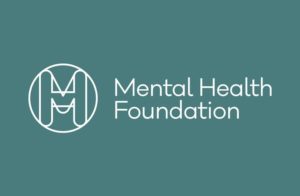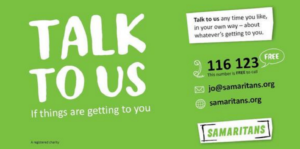Since learning as recently as March that I have a diagnosis of Generalised Anxiety Disorder on top of being Autistic, dear readers, this week carries more personal significance for me than ever before. Much like coming to terms with my Autism back in 2011, my new diagnosis of Anxiety was a personal revelation for me. Beforehand, I had always wondered why I seemed to struggle so intensely with the most basic daily tasks; going to sleep, waking up, going to the shops, focusing on the simplest task, driving, you name it. Eventually, when I was diagnosed with Anxiety in March, it all made perfect sense.
When I last went to the doctor about my anxiety issues, she talked my ear off about chemical reactions in the brain causing me to feel this way and proceeded to prescribe me medicine and recommended I get therapy, which as it happens I already was. While at first I kind of dismissed it as the inevitable medical jargon that kind of missed the point, as I felt my anxiety was being triggered by outside events, though upon reflection, it’s always just been kind of there, whether events are exasperating it or not. Perhaps it is the same for all mental health sufferers, though I would not presume to speak for them.

Mental Health Awareness Week 2018
With this year’s Mental Health Week’s theme being on the topic of stress, about as appropriate a theme as it gets, it got me thinking about how big a factor stress is in the lives of people who have to cope with a mental health condition and how it appears to affect us the most intensely. That’s not to say only people with Anxiety/Depression/Bipolar etc feel stress – that would be preposterous – however, as the doctor described to me, with chemical reactions going off in our brain, I daresay we feel it more acutely and more often.
The result? As the Mental Health Foundation accurately describes, it is near-constant ‘fight or flight’ mode. Constant tension of the body and mind, as a result, constant feelings of exhaustion. Constant brain fog, constantly procrastinating, constant distraction. From personal experience, dear readers, I could give you a list that would last longer than The Simpsons, but I doubt you’d have the patience. Therefore, perhaps it would be best to simply skip ahead to some suggestions on how to combat stress.

Mental Health Foundation
As Sun Tzu states in his book ‘The Art of War’, “know thyself, know thy enemy”. Rather ironically, both you and the stress you feel play both roles; the mental health condition, as well as the accompanying stress, are part of you, yet inextricably they are both enemies to be defeated. So how do you defeat this internal enemy, as it were? In my humble opinion, the first step to resolving the problem is to come to terms with it. Self-awareness. Realisation and acceptance of reality. How many times have you found yourself tossing and turning in bed, desperately trying to sleep, only to find you’ve overslept and are late for work again? How many times have you tried your hardest to focus on your work, only to be overpowered by the overwhelming need to procrastinate? When this happens, it’s time to accept reality; you’re stressed.
“Know thyself, know thy enemy”. This is the all important first step.
Stress accounts for 23.9 working days lost for each person affected every year according to the Mental Health Foundation, who also find in a poll of over 4,000 people that 74% have felt so stressed that they couldn’t cope. Given those statistics, if you’re worried about appearing weak by admitting to stress, dear reader, don’t be. You’re hardly alone. Since we’re now well into 2018, we should be able to be honest with ourselves and those around us about our stress. Once we’ve recognised the problem, we can take action.

The Samaritans contact information
When we have taken a mental inventory and come to terms with our stress, the best thing to do is seek help. What kind of help? Usually, the best help is the kind that helps you put your problems into perspective and help you arrive at a constructive solution. For example, it might be as simple as talking to a family member or a close friend that you can trust implicitly. It might also be your GP. You could also turn to the Samaritans for help, or perhaps if you require advice related to a specific disability/mental health condition, most related charities have a helpline or an advice service you can call or email. I personally have turned to the Samaritans and Autism Anglia’s advice service many times. More recently, I have also attended therapy sessions and counselling, both of which have helped me immensely in dealing with the triggers of my stress by arriving at constructive conclusions.
Again: ‘know thyself”.
Am I saying counselling/therapy will irrefutably work for everyone, as it has for me? No. Would I recommend it? 100% yes. In fact, I’d recommend any and all of them. Different things will work for different people … for some people, it might be as simple as a good workout at the gym, or a nice long walk. I myself have had a couple of personal epiphanies while out for one of my nightly walks, or soaking in a nice hot bath. Sometimes that’s all you need to put things into perspective.
But no matter what you do, dear readers, the important thing to take away from Mental Health Week 2018 is to Address Your Stress! The absolute worst thing you can do with stress is ignore it, go into denial or just ‘man up’ and ‘tough it out’ while the stress erodes your mental wellbeing. Surely if I were walking around with an open wound or some manner of physical injury, you’d tell me to see a doctor right? Well, I submit to you that mental stress is no different from any injury … and it makes no sense not to get it treated. As I said before, it’s 2018 now … well past time we put this outdated stigma towards getting help to bed. So if you’re feeling stressed, I’d like to let you know that you are not alone, and it’s ok to get help!
